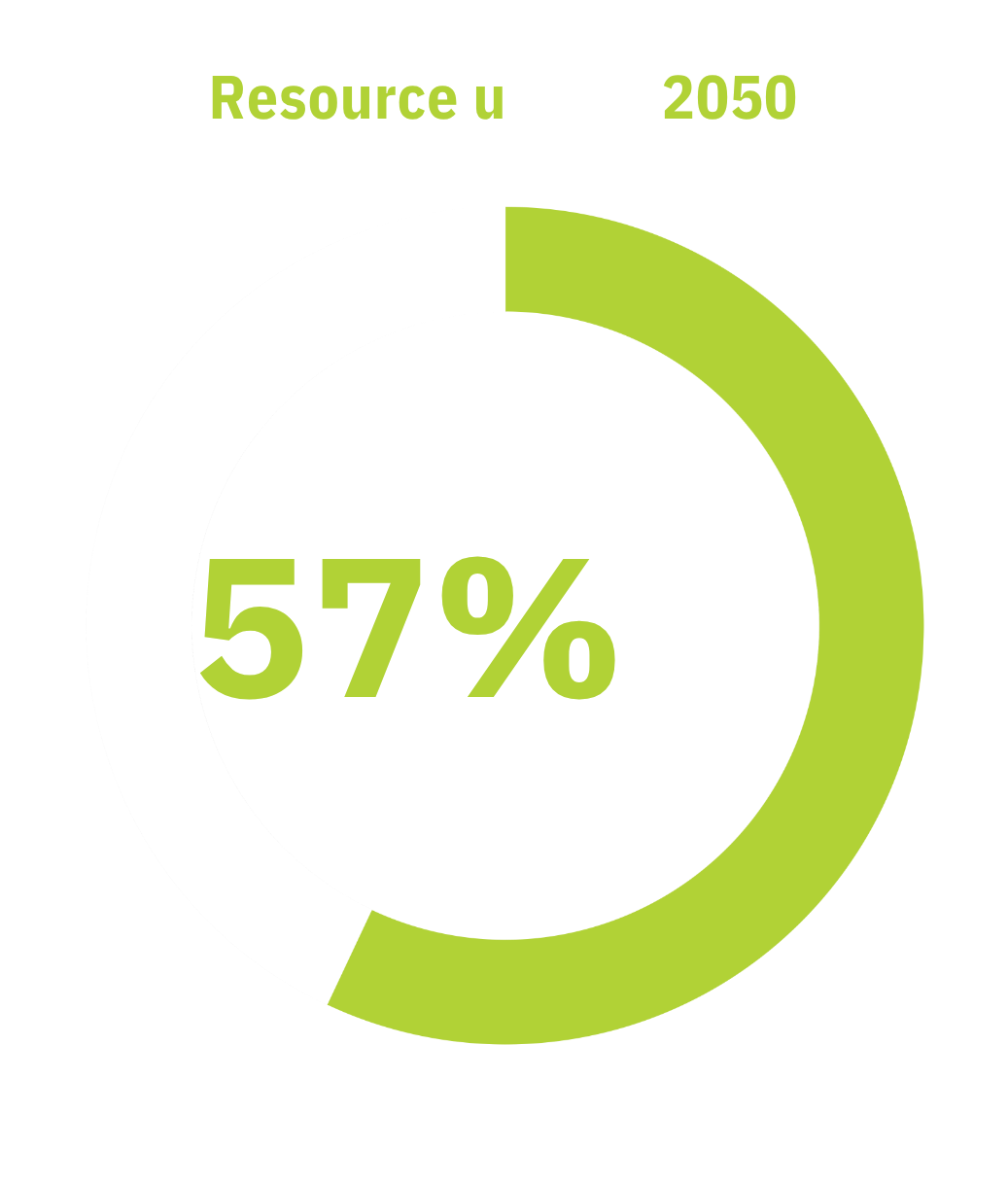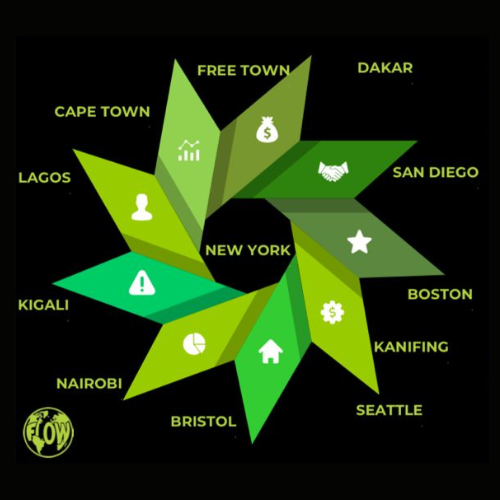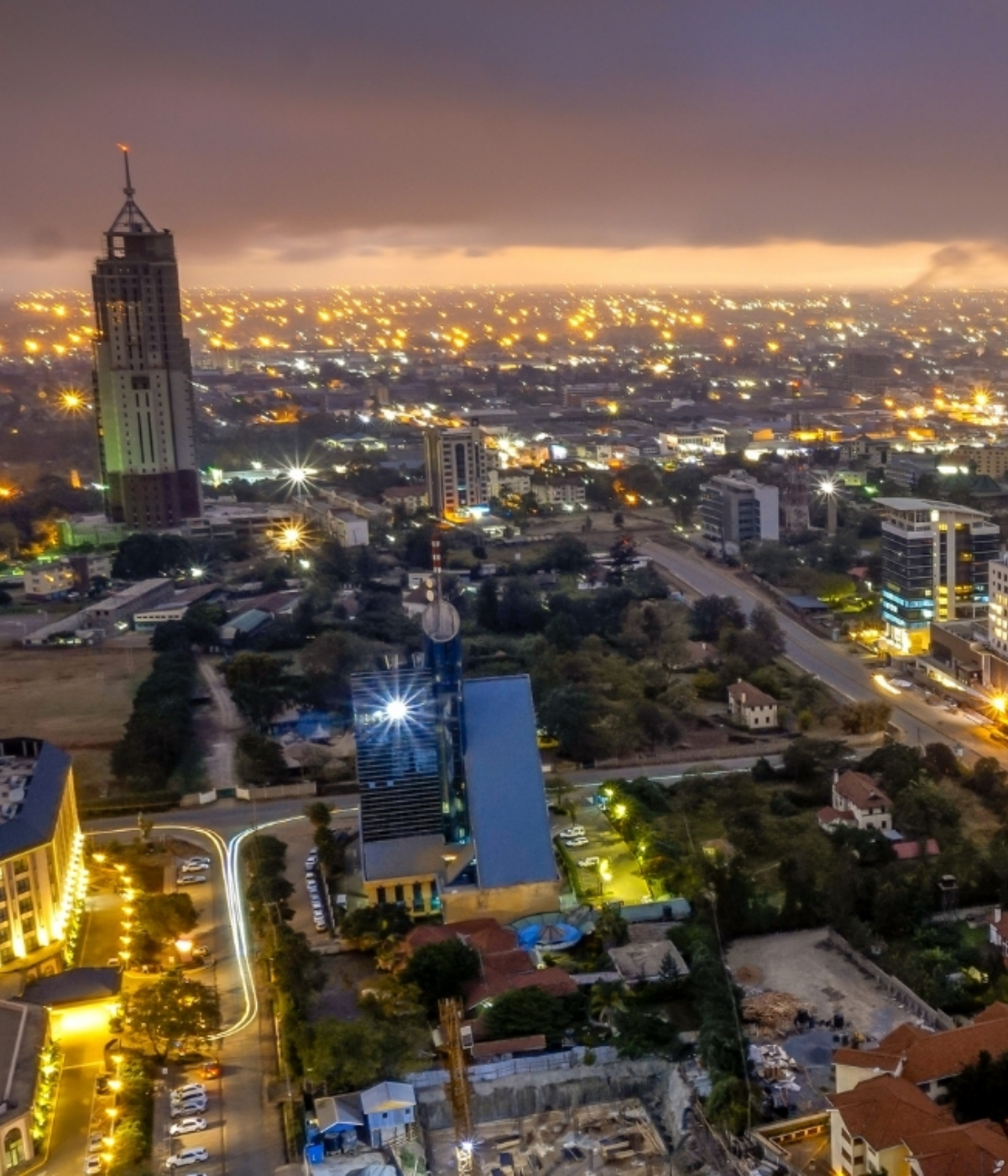The
Polycrisis
In 2050, there will be approximately 9.7 billion people, of which 70% shall be in cities. For all of humanity to live within the resources of our planet, the impact of each human being in 2050 will have to be approximately 57% less than that of the average person living today. This has vast developmental implications for prosperous and impoverished nations and communities. Implications that need enlightened action.

How We FLOW
Turning Principles into Action
Develop and enhance urban policy for countries, cities, and mayors, particularly with a view to the built environment and its intersection with nature.
Curate city-to-city networks as communities of practice using AI and other urban planning tools to model spatial economic opportunities and forecast threat.
Create and program Planet Smart Economic zones, to strengthen and create value chains, for cities and countries, corporates, and communities
We design tangible futures, and produce thought leadership by working on real projects in transdisciplinary teams, committed to circularity and the FORESEE Framework.
City Labs for Urban Benchmarking
CLUB_57
A network of African cities piloting adaptive housing, food forests, and climate-smart public spaces. CLUB_57 will have a 2026-2030 lifespan, aligning with the 2030 Sustainable Development Goal Horizon, and to identify pathways to reduce per capita carbon emissions by 57% by 2050. Flow will curate and host 20 African cities known as CAUSE, [Carbon Africa Urban systems for the Environment] and conduct transdisciplinary research linking material science, social equity, and ecological sustainability to policy and government innovation = CLUB_57 (City Lab for Urban Benchmarking) in conjunction with Carbon Dioxide Reduction.

CAUSE
Carbon-Africa Urban Systems for the Environment
These cities form part of a larger cluster for policy engagement and setting carbon sink goals, in partnership with Carbon Dioxide Removal (CDR).

Planet Smart Economic Zones
FLOW proposes that African nations evolve beyond “Climate Smart” toward “Planet Smart” Economic Tax Zones as a bold strategy to drive green growth. These zones – essentially next-generation special economic zones (SEZs) with sustainability at their core – aim to boost exports of spefic low-carbon goods, create jobs (especially for youth), and strengthen local value chains.

OUR WORK
Diverse Industries. Common Challenges.
A full service web design and digital marketing company in Chicago specializing in web development, SEO and PPC to grow your revenue. Guaranteed.
